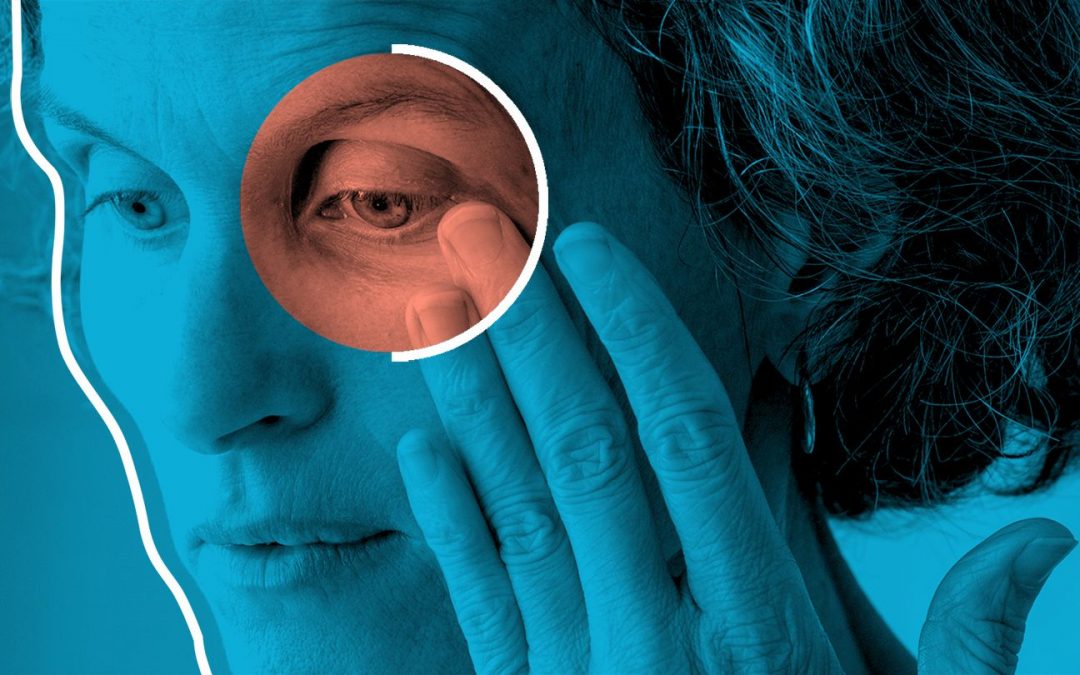Eye Signs I should look out for if I have Thyroid problems
Thyroid disease affects 5% of all Americans, which means that nearly 8 million people in the US have some type of thyroid disorder. As thyroid problems are so common, it is important to know the possible eye signs that can occur with this condition.
The American Thyroid Association (ATA) recommends that you see your doctor if you notice any of these symptoms:
- eyes that bulge out more than normal,
- blurred vision,
- double vision without an obvious cause such as a muscle spasm or other existing health problem like multiple sclerosis (MS),
- difficulty moving your eyes or eyelids,
- drooping of the upper eyelid,
- puffiness underneath your eyes,
- dryness in one eye more than the other,
- light sensitivity,
- redness in one eye more than the other,
- tearing from only one eye or crusting on lashes of an open eye
BULGING EYES
Bulging eyes are a sign that the muscles around your eyes are swollen. This can be caused by Graves’ disease, an autoimmune disorder that is associated with overactive thyroid glands.
DOUBLE VISION
Double vision can occur when the muscles that control your eyes movements become weak. This can be caused by Graves’ disease or myasthenia gravis, a condition that affects the muscles throughout your body.
DRY EYES
Dry eyes are a common symptom of thyroid problems. The tears that normally lubricate your eyes may not be produced in the right amount or they may be produced but may not have the right composition or the tears are unable to coat the eyes due to bulging of the eyeball.
Latest treatment for Thyroid Eye Disease
Thyroid eye disease (TED) is a condition that could result when the thyroid gland produces too much or too little thyroid hormone.However, it is most commonly associated with an overactive thyroid.
Thyroid eye disease can cause swelling and inflammation of the tissues around the eyes, which may lead to blindness or vision loss. The purpose of this article is to describe the latest treatments for thyroid eye disease and how it affects people living with thyroid eye disease conditions.
The current treatment plan for patients suffering from thyroid eye disease includes the following:
- Selenium
- Artificial Tears/Saline eye drops
- Steroids
- Teprotumumab
- Surgery
- Radiotherapy
- Stop Smoking
- Eye patch/cover
A study has shown that medical treatment involving implants along with medication was effective in reducing inflammation among patients suffering from severe forms of thyroid eye disease. For those who suffer from milder forms, medical treatment combined with oral medications proved successful. Medical intervention provided relief to 75 percent of participants over a six-year period.

In some cases, surgery is the only option. A total of 97 percent of patients who had surgery reported that their eyesight improved following the procedure. Surgery to correct thyroid eye disease usually involves removing the fat and muscles that have pulled the eyelids down, or by correcting the problem with the tear ducts.

Radiation therapy may also be used in some cases as a treatment for thyroid eye disease. This therapy uses high-energy rays to destroy cancer cells. When used to treat thyroid eye disease, radiation therapy is aimed at shrinking the swollen eye muscles.
Insight from an Ophthalmologist
Thyroid eye disease is a serious condition that requires early diagnosis and treatment to prevent vision loss. In addition to the physical difficulties caused by thyroid hormone disorders, untreated cases of thyroid eye disease can result in irreversible visual impairment as well as permanent damage to other parts of the body such as bone density or cardiac function.
If you are experiencing any vision symptoms associated with an underlying thyroid disease including bulging eyes, double vision, dry mouth and throat among others, be sure to contact an opthalmologist for immediate review and discussion on whether or not you would need an eye surgery referral.
If you would like more information on what to do next for your eye care – click here to make an online booking with Dr. Saad Sheikh, MD for a 1-to-1 virtual consult on The VIOS Clinic.
BLOG AUTHOR
Dr. Saad Sheikh, MD, MBA
Dr. Saad Shaikh is a board certified ophthalmologist & fellowship trained vitreoretinal specialist. Dr. Shaikh was one of the early practitioners of small-gauge microinvasive vitreoretinal surgery & has served for many years as an Orbis & Doctors without Borders telemedicine consultant for complex eye cases.
Read more about him here.

